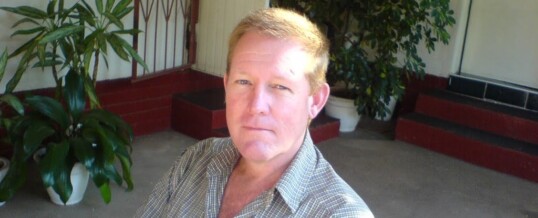Meet Elena Gomez and Joyce Kanimba, (above) representatives from Kubuka NGO in Livingstone, and guests on the most recent edition of the Chanters Lodge Experience with the Milli Jam Ingredient featuring Jay Hillz. ‘The Experience’ is our weekly radio show airing from 20.30 hrs CAT on Zambezi 94.1 fm, Livingstone’s leading local radio station. We often feature guests staying at the lodge, sometimes members of staff but often local Livingstone personalities such as Elena and Joyce.
The ladies told listeners that ‘kubuka’ in the Tonga language means ‘waking up’. Milli Jam decided he would address Elena by her Tonga name ‘Mutinta’ throughout the show, meaning ‘first of a kind’ – apparently! Kubuka NGO is a non-profit organisation created to guide the most vulnerable communities in Zambia on their journey to sustainable development. Elena, one of a group of five Spanish young people involved in the NGO has been coming back to Zambia every year since she first landed in Livingstone when she was just 18 years old. She is now a qualified doctor from Madrid University and is back in Zambia until April taking the affairs of Kubuka one stage further. Joyce is Kubuka’s permanent representative in Livingstone and hails from a teaching background.
The NGO works with local people as one. They are working in Maramba and Mwandi communities in Livingstone. They have a programme to sponsor 60 children from the Mwandi community. They give workshops to young teenagers to improve their knowledge on health, sex, business and other useful topics. They are working with a home based care group in Maramba, creating a farm that can generate income to be able to give back to the community by buying medication for HIV patients, and building a cultural centre to give talks and providing a library for youths.
The music on the show was right up to standard. We opened with smash hits from Fergie and Karen Harding. Milli Jam and Jay chose ‘Jovial’ a brand new and great track from Zambia’s own Chilu Lemba, as well as others from Fall Out Boy, The Weekend and Zambia’s Salma Dodia ft Cactus. Our pick of the week was former ‘Experience’ host Kaufela’s latest ‘For You’. Our oldie of the week was by TLC and the prize we give of a dinner for two to the first person to text us the name of the artist on the track was snapped up by Mwiinga.
Joyce told us that she was very married with a large family and that her favourite music was gospel. Elena is single. “Spoken for?” Asked Milli Jam. Pause. “Errrr…..no” the reply. We jumped! “That was very hesitant” I said. “Just imagine!” Said Milli Jam but we were unable to prise out any more detail in this regard. Elena is a fan of Real Madrid and her favourite player is Casillas. “A goalkeeper?” Queried Milli Jam. “I bet it’s not about football” I said and our Guest blushed and laughed! She likes all kinds of music but her favourite artist is Despatch.
Asked where they would like to be and what they would like to be doing in ten years’ time, Elena said she would like to be a practising doctor in Africa still supporting Kubuka NGO. Joyce hoped still to be working to help vulnerable boys and girls in Livingstone. “Great stuff”! We said.
FEB



















